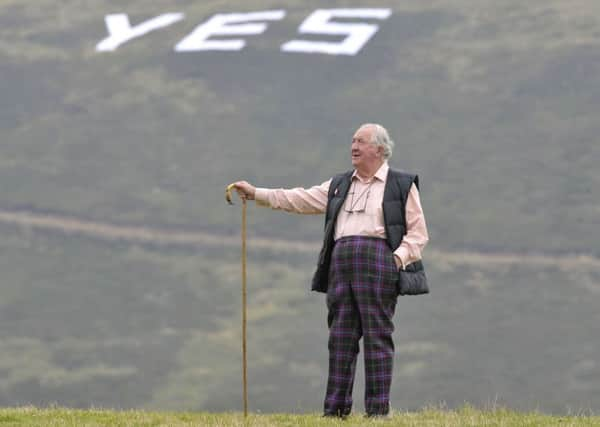Key Yes supporter and SNP split over council policies


As an independent councillor in Midlothian, de Vink had been working in partnership with the SNP group for the Past four-and-a-half years. But he has objected to the Scottish Government’s plans to pool revenue from council tax rises – a strategy that removes the local link between where the cash is raised and spent.
The SNP took the step of ending their partnership following his outspoken attacks on the no compulsory redundancy policy for local authorities that is operated by SNP-led councils.
Advertisement
Hide AdAdvertisement
Hide AdA well-known Edinburgh financier, de Vink was one of the business people who signed a pro-independence letter during the 2014 referendum campaign. He also arranged for an enormous Yes sign to be displayed on a hill in his Midlothian estate and was praised in Alex Salmond’s referendum diaries. Since the Brexit vote, however, he has advised against rushing into a second referendum, arguing that while he believed independence was inevitable, it would not come for a decade.
The Scottish Government has said cash raised by new council tax rises will be used to tackle the education attainment gap. The revenue will be redistributed on a national basis to target the poorest schools – a move that has been attacked by those who believe council tax should be spent locally.
De Vink said: “Today we are facing the most savage cuts local councils have ever encountered. I strongly disapproved of the recent £1.2 million raid by the Scottish Government on the £1.7m raised from the increase in Midlothian’s Council Tax. I felt that all of the £1.7m should be used for education in Midlothian, not elsewhere. My ward includes Mayfield, one of the most deprived areas in Scotland, and I would have loved to have those funds to have been spent there, not in Glasgow or Dundee.”
De Vink said Midlothian Council was facing a £40m budget shortfall in 2020. Of a turnover of £194m, the payroll came to £124m.
“We have an unbelievable 66 per cent of all income that goes on the wage bill. There are 4,000 people who work for Midlothian Council while 85,000 people live there. I feel it is fundamentally wrong to benefit the 4,000 at the expense of the 85,000 who suffer cuts in their services.”
A spokesman for the Midlothian SNP group said: “The Midlothian SNP group gave a clear manifesto commitment to protecting jobs in Midlothian Council and are proud of their record in administration. Implementation of the living wage, a programme of improving low pay and protecting jobs with a no compulsory redundancy policy have provided economic stability to Midlothian in challenging times.
“We were therefore saddened to hear Councillor De Vink’s comments attacking the hard working employees of the council and calling for an end to the SNP council group’s manifesto pledge of no compulsory redundancy. As a result of a divergence of opinion which leaves a continued partnership unviable – a decision to end formal coalition was unanimous and effective as of 8 November, 2016.”